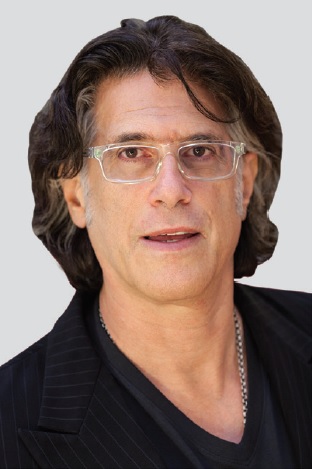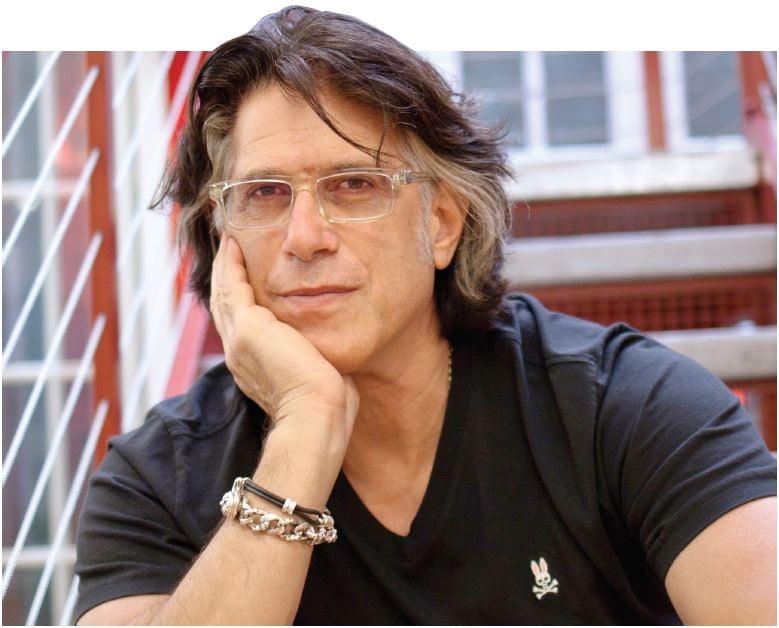“I DON’T consider myself a role model for a well-planned life,” admits Stan Slap when asked how he achieved his phenomenal success despite dropping out of high school. “It all turned out okay but that’s more serendipity than anything else,” he insists. “It could have gone bad.”
The suggestion that everything turned out okay is a ludicrous understatement. Since starting his namesake organisation SLAP 25 years ago, the San Francisco-based management consultant has conducted business in more than 70 countries, earned superlative praise from some of the world’s most respected corporate leaders, and signed a three-book deal with British publishing house Penguin.
The latter, Slap says, is one of his biggest achievements.
“I’m a huge reader, and writers are heroes to me,” he reveals. “The ability to take a few dozen letters and turn them into these transportational works of art is always something I’ve been stunned by and I just really wanted to do it myself.”
A people-first approach
Slap’s books offer a much-needed glimpse into what businesses could look like if leaders dared to shake up their priorities and put people first.
“I believe that the lack of humanity in business is a global issue and it aff ects everybody,” Slap says, when asked why he decided to write a business book rather than pursue his personal passion for fi ction. “No matter how many clients we took on, we couldn’t get through the scale we needed to, so the book was a tool to get to that scale.”
Everyone has to start somewhere
It’s clear Slap is on a mission to change the status quo of global corporations, so I asked him how it all started.
“For me, the worst thing that one human being can do to another – short of actually killing somebody – is to make somebody feel small,” he begins. “So the passion that started to drive my company in the early days was the notion that nobody should be diminished by business, working in it or buying from it.”
While colleagues shared his compassionate ethos, the same couldn’t be said for everyone.
“Everybody in my company loved that idea, so I naively assumed that every other company would love it too,” he laughs. “I’d go to these meetings with clients and say, ‘You know what’s really important here – nobody should be diminished by business, working in or buying from it’, and I’d get this immediate, intense, rabid disinterest. They’d be like ‘OK, yeah that’s beautiful. Now back to these numbers’.”
This lukewarm reaction led Slap to focus solely on culture.
“I realised that if I was really going to change the standard, I’d have to find something that was of compelling interest to people – and that’s what led me to culture, because culture is where the humans gather in business,” he explains.
All roads lead to culture
SLAP carved out its consulting niche by starting with a proprietary definition of what a culture is. He then figured out how it operates, and finally he identified the biggest potential gain for an enterprise in regard to its manager culture, its employee culture and its customer culture.
“Culture is the most overused and often least understood concept in business,” asserts Slap. “Our expertise is in understanding how the three cultures in business actually work, then maximising their commitment to the enterprise.”
“I knew that if I could reposition these three cultures back to the enterprise as newly precious workable assets, the enterprise would protect them,” he explains. “An enterprise will instinctively protect anything that’s an asset – especially if it’s just been presented as newly squeezable – and you can’t protect these three cultures without protecting the humanity they represent.”
The biggest challenge, Slap says, is getting other organisations to realise the true value – and power – that company cultures hold.
“The problem is that if you don’t understand what a culture is, you don’t understand the manifestations of real cultural impact,” he says. “You wouldn’t understand leadership, you wouldn’t understand strategic execution and you wouldn’t understand branding – all of those things are purely cultural play.”
Everyone has an opinion …
Many HR professionals are well aware of the vital importance culture can play. However, Slap says some organisations still falsely categorise culture as ‘soft and fluffy’, so everyone feels confident to assert their misguided opinions, even if they’re not experts.
“A lot of the challenge is, without making somebody feel like an idiot when they’re very accomplished, gently but firmly rewiring the definitions of culture and helping them realise what’s really possible,” he explains.
Despite quantifiable evidence of his success and gushing testimony from the likes of Apple, eBay, Facebook, Google, HSBC,
Microsoft and many, many more, Slap says some organisations still stubbornly resist change.
“I would say that, without naming them, the toughest companies to work with are the ones that operate with a fundamental contempt of their employees and customers,” says Slap. “Either that, or the ones that are just trying to divert attention from previously committed heinous acts, when they’re not really repentant.
“We don’t do that any more,” he adds. “Those were very early mistakes we made in the company, but we have great radar for that now.”
Of course the bad seeds, Slap says, are few and far between.
“There’ve been a lot of beautiful moments we’ve had in companies where you can see the epiphany come together and say: ‘My God, we can actually treat humans with empathy and respect and make a ton of money from doing it!’
“Those are beautiful. We’ve turned around a lot of companies, we’ve saved a lot of companies, we’ve helped companies scale without losing their soul, and we’ve been responsible for legendary performance improvement in companies,” he says.
“I’m in business to make the business case for humanity, because if we lose it in business, we’re all doomed,” he adds. “If we save it company by company, manager by manager, then we save ourselves.”
FOCUSING ON EMPLOYEE CULTURE
Slap’s latest book, Under the Hood: The Stunning Power Hidden Inside Your Employee Culture, is his second literary offering. It focuses on the importance of establishing a positive employee culture. HRD asked him about the biggest challenges this poses for HR professionals.
“Understanding what an employee culture really is, that’s probably the greatest challenge to HR professionals,” reveals Slap.
Despite acknowledging the difficulty of truly understanding an employee culture, Slap insists much of the issue is down to smoke and mirrors.
“There’s so much mythology and misdirection and superstition and generalised academic babble about what a culture is,” he complains.
“It’s an independent organism living right inside the enterprise and its motivations are fundamentally
different from that of the company it works for – but they can be aligned,” he insists, “and when they’re aligned that’s when you get maximum commitment.”
This theory of commitment is what many leaders miss in their attempts to create a positive company culture, asserts Slap.
“The definition of a great culture is not a happy culture – the definition of a great culture is a committed culture,” he explains. “Once it’s seen that way, as a business performance issue, that’s when you are on the way to taking it seriously and treating it with the respect it deserves.”
 THREE BIG QUESTIONS
You left home at 16 and never finished high school – how would you say that influenced you?
THREE BIG QUESTIONS
You left home at 16 and never finished high school – how would you say that influenced you?
I think it gave me an appreciation for the importance of character and a very well-chosen community of people. I was on my own and had to figure a lot of stuff out, and I think it just gave me different parameters to what I look at – because everything I did had big consequences, and there wasn’t necessarily going to be any coverage for that, so I really had to think through the implications of things.
Despite your unconventional start, did you always expect to achieve big things?
I can’t claim that kind of retroactive self-awareness. Really it was kind of a guided missile. I was always – even as a little kid – unusually fascinated by business. Just the act of commerce and business as a conduit for humanity always fascinated me. While some kids were looking at baseball – and I did that too – and sports and this and that, I always had this thing for business.
Did I think I was going to be successful at it?
There’s no way to answer that question without sounding like an arrogant snot. I figured that I would do something – whether it would get me praised or jailed, I don’t know.
You’ve done business in more than 70 countries. Is there somewhere you enjoy working the most?
Each country has got its own attractions. A lot of the developing countries are great because you’ve got the ability to mint their perspective from the get-go – the right way to look at business.
Then there are a lot of larger countries – some of the Asian ones – where there’s just such a tremendous desire and an eagerness to learn. In Asian culture, the sense of longevity and humility that a lot of companies have is just such a delight.
In Norway, their definition of trust is just phenomenal – it’s distinct from any other country that I know of. You start with trust; you start with that equity that you are trustworthy as an individual, as an enterprise, as a government entity – but if you ever burn that trust you might as well leave the country.
THREE BIG CULTURES
1. Manager culture: “The biggest issue for the enterprise is the gaining of emotional commitment – a company can gain financial commitment, intellectual commitment and physical commitment, but those combined aren’t as important as emotional commitment,” warns Slap.
“Emotional commitment will translate as managers taking on a company’s success as a personal crusade. Sometimes you get that in the early garage days or in times of tremendous pain or gain, but you need self-sustained emotional commitment for prolonged success.”
2. Employee culture: “It doesn’t matter how well strategies are planned; it’s how well they’re implemented that counts, and that success depends entirely on your employee culture,” stresses Slap.
“Ultimately, the employee culture has the power to make or break any management plan.
3. Customer culture: “The biggest compliment that a company can be given is if its customer-culture company brands it,” says Slap. “This means you have transferred sustainability of your company to your customer and they advertise themselves for you.”


 THREE BIG QUESTIONS
THREE BIG QUESTIONS